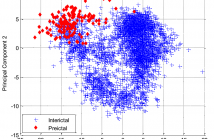
The IEEE Global Conference on Signal and Information Processing (GlobalSIP) is a flagship conference of the IEEE Signal Processing Society. GlobalSIP'15 will be held in Orlando, Florida, USA, December 14-16, 2015. The conference will focus on signal and information processing with an emphasis on up-and-coming signal processing themes. The conference will feature world-class speakers, tutorials, exhibits, and sessions consisting of poster or oral presentations. Outstanding papers will be selected for Best Paper Awards or Best Student Paper Awards; a paper is eligible for a best student paper award if the first author of the paper is a student. IEEE Signal Processing Society and National Science Foundation will provide travel grants to eligible students.
- Read more about Experimental Demonstration of High-Order Modulation for Optical Camera Communication
- Log in to post comments
- Categories:
 4 Views
4 Views- Read more about UAV-Assisted Broadband Network for Emergency and Public Safety Communications
- Log in to post comments
Communication during emergency situations is crucial to saving lives. Rescue workers at an emergency scene need to be able to coordinate and communicate effectively. Despite the vast improvements in personal communication networks, public safety communication has been lacking. A recent bill from Congress and the FCC has provided the groundwork for the creation of a nationwide broadband public safety communication network. This advancement in technology will allow rescue workers to receive critical information updates in all forms of media (e.g., video, text and voice).
- Categories:
 10 Views
10 Views- Read more about A New Unsupervised Event Detector for Non-Intrusive Load Monitoring
- Log in to post comments
- Categories:
 12 Views
12 Views- Read more about Optimal State Estimation for Boolean Dynamical Systems using a Boolean Kalman Smoother
- Log in to post comments
This paper is concerned with state estimation at a fixed time point in a given time series of observations of a Boolean dynamical system. Towards this end, we introduce the Boolean Kalman Smoother, which provides an efficient algorithm to compute the optimal MMSE state estimator for this problem. Performance is investigated using a Boolean network model of the p53-MDM2 negative feedback loop gene regulatory network observed through time series of Next-Generation Sequencing (NGS) data.
- Categories:
 10 Views
10 Views
- Read more about Seizure Prediction using Hilbert Huang Transform on Field Programmable Gate Array
- Log in to post comments
The Hilbert Huang Transform (HHT) has been used extensively in the time-frequency analysis of electroencephalography (EEG) signals and Brain-Computer Interfaces. Most studies utilizing the HHT for extracting features in seizure prediction have used intracranial EEG recordings. Invasive implants in the cortex have unknown long term consequences and pose the risk of complications during surgery. This added risk dimension makes them unsuitable for continuous monitoring as would be the requirement in a Body Area Network.
- Categories:
 29 Views
29 Views- Read more about Toward a Semi-Supervised Non-Intrusive Load Monitoring System for Event-based Energy Disaggregation
- Log in to post comments
GlobalSIP1501
- Categories:
 8 Views
8 Views- Read more about Bird Sounds Classification by Large Scale Acoustic Features and Extreme Learning Machine
- Log in to post comments
- Categories:
 8 Views
8 Views- Read more about Magnetic Resonance and computed Tomography Image Fusion using Bidimensional Empirical Mode Decomposition
- Log in to post comments
- Categories:
 17 Views
17 Views- Read more about The Role of Perceptual Texture Dissimilarity in Automating Seismic Data Interpretation
- Log in to post comments
- Categories:
 12 Views
12 Views